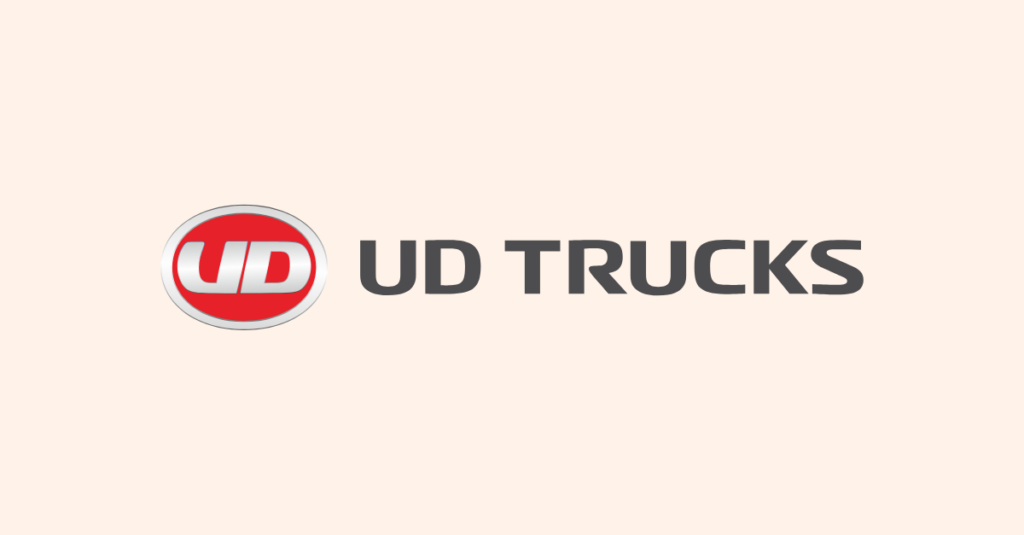Share this on:
What You'll Learn
This guide will help you find the right type of data storage platform for your organization. Learn why data warehouse modernization is important and the best practices to migrate your current data warehouse to the cloud and drive advanced analytics for your business. Also, discover the advantages of leveraging data modernization services with LumenData.
What is Data Warehouse Modernization?
To put it simply, data warehouse modernization includes processes where you revamp or extend your current data warehouse architecture – typically on-premises data warehouse. This is done to reap the benefits of newer, advanced cloud data warehouse solutions that help take your analytics capabilities to the next level. Some of the key players in the cloud data warehousing market are AWS, Google BigQuery, Snowflake, Databricks, and Informatica.
A data warehouse modernization project includes key processes like data consolidation, modernizing data storage and processing, moving data to an environment where it can be transformed correctly, optimizing query performance, and more. Plus, when you migrate to a modern data warehouse platform, you get functionalities that support AI and machine learning workloads.
Also known as an enterprise data warehouse (EDW), data warehouse is an enterprise data platform used for the analysis and reporting of structured and semi-structured data from multiple data sources, such as point-of-sale transactions, marketing automation, customer relationship management, and more.
Key Statistics to Note
94% of small-sized organizations have used cloud platforms for their data storage requirements.
The global data warehousing market will grow at a compound rate of over 250% by 2028.
In 2023, the data warehousing market size is valued at US$ 31.80 billion, & total revenue is expected to be US$ 64.79 billion by 2030.
60% of organizations are planning to modernize to a Cloud Data Warehouse.
81% of mid-sized and large organizations use cloud for data storage and backup.
60% of organizations approach data warehouse modernization with automation.
If you’re wondering about the reasons to modernize your existing data warehouse to a cloud platform, the next section of the blog has the answer.
Why Data Warehouse Modernization?
Companies are generating data at a growing speed, whether it’s structured, semi-structured, or unstructured. But most of the legacy data warehousing platforms that they use only support structured data. Legacy tools cannot guarantee optimized business efficiency and agility and often lead to increased business expenses. But when you modernize to a modern data warehouse architecture, you get solutions that support all data formats. Here are some reasons to consider data warehouse modernization for your business:
1. Easily Support New Business Needs
Your business will keep growing and adapting to market changes. So, your need for data will also evolve. In the case of new products/services and customer segments, your requirements for new data types and insights will increase. Legacy data warehouse platforms won’t be able to keep up with your growing business needs.
Solution? Modernizing data warehouse architecture! Migrating to a cloud-based data warehouse will help you integrate diverse data sources and enable real-time data processing. Modern data warehouses are scalable and flexible and can change with changing organizational requirements.
2. Facilitate Self-Service Analytics and Business Intelligence
With traditional data environments, your data is located at different systems. This makes it difficult to access the right data at the right time and delays the entire data analysis process. Modern data warehouses, that are often cloud-based, provide you with centralized, scalable data architecture where you can easily access trustworthy data. You do not have to spend a lot of time finding data and can focus better on analyzing it.
Moreover, most modern data warehouse platforms like Snowflake partner with leading business intelligence solution providers to power data-driven business intelligence. BI tools, in turn, help non-technical users in your organization to access and visualize data with features such as intuitive dashboards, natural language query, and more.
3. Get Better Data Security & Governance
One of the most important reasons to modernize your data warehouse is to enable robust data security and governance framework. With a modern, cloud-based data warehouse, it becomes easier to adhere to the latest data standards and regulations. You get metadata management tools to discover and document all the critical aspects of your data. You can easily find information like who used data and for what purposes, how your data reached its destination, and more.
Modern data warehouses often have built-in data compliance support and are designed to meet regulatory standards such as GDPR, CCPA, HIPAA, and other important compliance bodies. To boost data security, modern data warehouse platforms have role-based access controls, attribute-based access controls, and fine-grained data access policies. Security is, further, enhanced with multi-factor authentication.
Ensure Top-Level Governance for your Organization with our Technology Partner Snowflake
Snowflake is one of the leading providers of modern data warehouse solutions and provides industry-leading governance features like:
- Object Tagging: Helps track sensitive data for compliance, protection, and more.
- Access History: Audits user access history to help you understand who accessed the data, what type of data was accessed, and what time it was accessed.
- Data Metric Functions: Enables you to monitor the state and integrity of your data with user-defined data metric functions.
To learn about more interesting governance solutions offered by Snowflake, visit this page.
4. Optimize Cost Reduction
When you move from legacy systems to modern, cloud-based data warehouse architecture, your overhead costs associated with hardware maintenance are automatically reduced. You get to work with a single, centralized platform that offers features like on-demand scaling, integrated analytics, and more. You pay for only what you use.
Data Warehouse Modernization Use Cases
Supports All Types of Data
When you undergo a data warehouse modernization project, you gain the ability to work with and handle all data types such as structured, semi-structured, and unstructured data. Examples of structured data include sales transactions, invoices, databases, etc. JSON files, XML files, NoSQL databases are all semi-structured data. And finally, unstructured data examples are text documents, multimedia files, and social media content like tweets, posts, comments, etc.
Cloud Technology Advantage
Modern data warehouse solutions usually involve cloud technologies that benefit organizations in various ways. Based on your changing workloads, you get the liberty to scale or scale out quickly. With cloud computing, you can enable faster data processing and greater elasticity. Most cloud service providers will handle and enhance data security for your data warehouse modernization project. For instance, when you migrate your current data warehouse to the cloud, server security is handled by your cloud technology provider. You get to work with a well-managed data infrastructure.
Enables Real-Time Analytics
Modernizing your data warehouse saves you from long waiting hours for reports. You analyze data in real-time and gain the ability to respond instantly to changes in market trends, customer behavior, or operational requirements. When you have up-to-the-minute insights, you become more agile and facilitate better customer experiences.
Supports Hybrid Cloud and Multi-Cloud Deployment Models
Opting for data warehouse modernization provides you with deployment flexibility including on-premises, hybrid cloud, multi-cloud, and interoperability across multiple technology environments. Few examples to help you understand better:
- Legacy systems with analytics data warehouse: Connect traditional applications with Google Cloud BigQuery.
- Cloud to cloud interoperability: Store data in AWS S3 and analyze it in Snowflake.
- Cloud to on-premises interoperability: Connect Snowflake AI Data Cloud with SAP business warehouse.
Compatible with Leading Data Processing Engines
Most of the modern data warehouses are compatible with major data processing engines such as:
- Hadoop: Hadoop combined with MapReduce was one of the first big data processing engines.
- Flink: Flink is a stream processing engine and is optimized for real-time data processing.
- Spark: It’s a newly launched processing engine. However, it does not have its own distributed storage layer.
- Samza: Distributed stream processing engine that’s built on Kafka and YARN.
Supports Artificial Intelligence & Machine Learning
In today’s time, data management without AI and ML is impossible to imagine. Your data volume and variety are growing at great speed, and you cannot depend on manual data discovery, tagging for your key data management processes. Modern data warehouses come with AI and automation can help you with data preparation. For example, masking sensitive data can be automated by AI and continuous refinement can be done using machine learning. Plus, you can automate data cleansing, integration, stream processing, and more.
Encourages Collaboration Among Data Users
One of the best advantages of modernizing your data warehouse is individuals in different roles can access and use different data types as per their unique requirements. For example: Data analysts can use self-service in a modern data warehouse to study data patterns. They are not required to spend time on data preparation as all the data is already cleansed and ready for analysis.
When data users are allowed to work independently with data, there’s better scope for collaboration among different data users. For example, the data preparation processes created by data engineers can be reused by other data users like data analysts. The analysts can directly work with data prepared by data engineers.
Data Warehouse Modernization Strategies
Cloud Data Warehousing
This is simple. You move your on-premises data legacy systems to a modern, cloud-based platform. Best advantages include greater scalability, zero or near-zero maintenance, higher elasticity, consumption-based pricing model, and more.
Data Warehouse Automation
Here you automate each phase of your data warehouse lifecycle – ETL pipelines, SQL code generation, and more.
Extending current data warehouse
This data warehouse modernization strategy involves the integration of your existing data warehouse platform with modern tools and cloud platforms. This helps enable real-time analytics and support operational business intelligence.
Using Modern Data Warehouses for Modernization Project
A modern data warehouse is a common architectural pattern that leverages cloud technologies to build analytical data pipelines and deliver faster and more flexible data processing. It is a single, centralized repository where you can store, transform, and manage data located at different sources.
A modern data warehouse is often termed as an intelligent data warehouse because it allows access to artificial intelligence and machine learning models. These models can be used to create dashboards and optimize performance.

Popular Cloud Platforms for Data Warehouse Modernization
There are a variety of modern data warehouse platforms that you can leverage in 2025. We have listed some of the best options for you:
Snowflake
Snowflake AI data cloud is the most advanced data warehouse platform that enables automatic performance improvements. As Snowflake is a fully managed platform, you are able to minimize the total cost of ownership with near-zero maintenance. World’s leading brands such as Siemens, Under Armour, Roku, and several other organizations trust Snowflake for their data warehousing requirements.
Best Benefits:
- Support BI & reporting, real-time analytics, ad hoc analytics, predictive analytics, & more on the same copy of data.
- Get automatic provisioning, query design & tuning, encryption across clouds and regions for an unlimited number of users and jobs.
- Rightsize compute resources to respond to workload fluctuations within just a few seconds.
- Enhance data protection with built-in security and governance.
- Share live data across various business units.
Price: Consumption-based pricing model
Databricks SQL
Databricks SQL is a leading intelligent data warehouse that’s built on Lakehouse architecture. It unifies data, analytics, and AI and helps eliminate the cost and complexity of legacy data warehouses.
Best Benefits:
- Leverage Delta Lake UniForm as the open storage layer and Unity Catalog for unified security and governance.
- Enables you to get insights from your data via a simple, intelligent interface – DatabricksIQ.
- Supports machine learning to automatically enhance the performance of your workloads.
Price: Pay-as-you-go pricing model, primarily based on Databricks Units.
Oracle Autonomous Data Warehouse
Oracle modern data warehouse is a cloud database service. It provides you with an integrated machine-learning solution to facilitate faster business decisions. Enable simplified analysis of your data with Oracle’s data warehouse automation.
Best Benefits:
- Complete and integrated package of data warehouse, data lake, data science, and analytics services.
- Find web-based user interfaces for self-service provisioning, data loading, and more.
- Built-in data management and analytics tools like Oracle Spatial and Graph.
- Best-in-breed services to build and deploy machine-learning models.
- The only solution that auto-scales elastically and provides complete and enhanced data security.
Price: Pay-as-you-go pricing model, based on the consumption of compute and storage resources.
Best tips for Data Warehouse Modernization
Creating a data warehouse modernization roadmap is important for ensuring the success of your project. Here are some best steps to follow:
Start with the Assessment of Your Current Data Estate
Not all your data needs to be moved to a new, modern data warehouse! We recommend building a list of all your data sources and then choosing which ones to migrate.
Address critical questions like:
- What is the goal of working with your data?
- What are the pain points/blockers you are currently facing? Data quality issues? Slow query performance?
- What types of data are siloed?
Know Your Business Needs
Remember your data transformation objectives and roadmap should align with your business requirements. Make sure you have a clear understanding of what you are trying to measure and how it will impact your business.
Choose the Right Data Warehouse Architecture
All businesses are unique and so are their needs. If you’re looking for multi-cloud flexibility, go for Snowflake. Databricks Lakehouse is a good option for AI/ML use cases. We recommend you choose a data warehouse platform that offers automation and robust data security and supports your growth roadmap.
Leverage Data Integration Tools
A data warehouse platform will help you gather all your data sources, but you would still require integrating all of this information, creating a unified view to prepare it for analysis. Enter modern data integration tools like Informatica and Fivetran.
Keep Optimizing
Your data warehousing requirements will evolve with time. So, it becomes important to make strategic changes to modernize technology, processes, and organizational operations.
Get started with the best-in-breed data warehouse modernization services
No matter where you are at data warehouse modernization today, LumenData is here to help craft and implement the right approach to fit your business requirements. We’ve led several successful modernization projects for businesses across various industries. One notable example is our work with a globally renowned pharmaceutical company, where we helped them migrate from a hyperscaler warehouse to Snowflake using the Informatica IDMC platform.
Find the full story here.
Reasons for Choosing Us
95% Risk mitigation for database migrations and data warehouse modernization.
275+ Certifications by leading cloud data platforms like Informatica, Snowflake, Databricks, & more.
Modernization roadmap along with data security consultation.
Proprietary automation tools to reduce cloud migration time by 2 months.
On-demand and scheduled support from data migration and analytics experts.
Contact us to discuss the steps to accelerate your data warehouse modernization journey today.
About LumenData:
LumenData is a leading provider of Enterprise Data Management, Cloud and Analytics solutions and helps businesses handle data silos, discover their potential, and prepare for end-to-end digital transformation. Founded in 2008, the company is headquartered in Santa Clara, California, with locations in India.
With 150+ Technical and Functional Consultants, LumenData forms strong client partnerships to drive high-quality outcomes. Their work across multiple industries and with prestigious clients like Versant Health, Boston Consulting Group, FDA, Department of Labor, Kroger, Nissan, Autodesk, Bayer, Bausch & Lomb, Citibank, Credit Suisse, Cummins, Gilead, HP, Nintendo, PC Connection, Starbucks, University of Colorado, Weight Watchers, KAO, HealthEdge, Amylyx, Brinks, Clara Analytics, and Royal Caribbean Group, speaks to their capabilities.
For media inquiries, please contact: marketing@lumendata.com.
Authors

Content Writer

Senior Consultant




